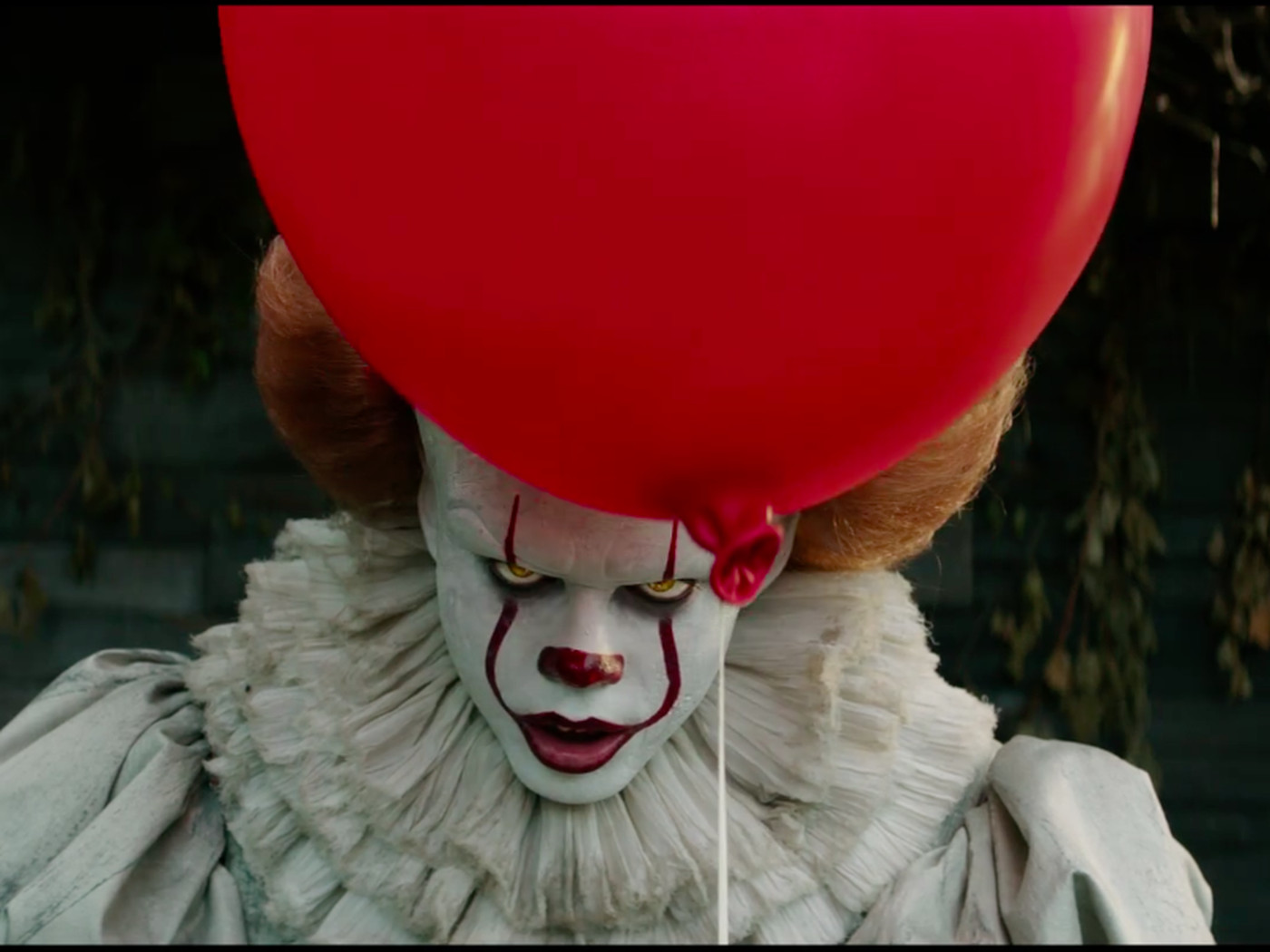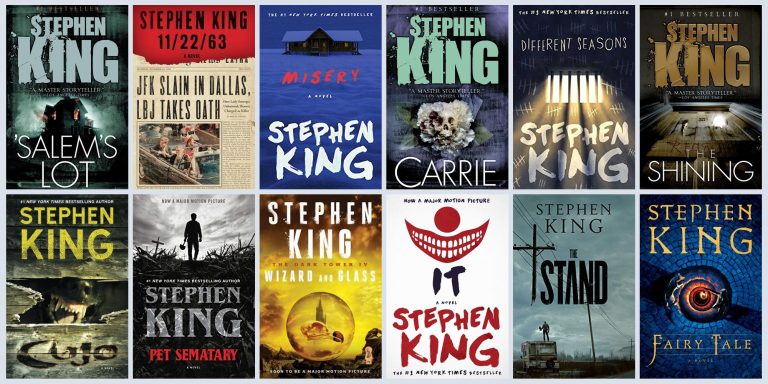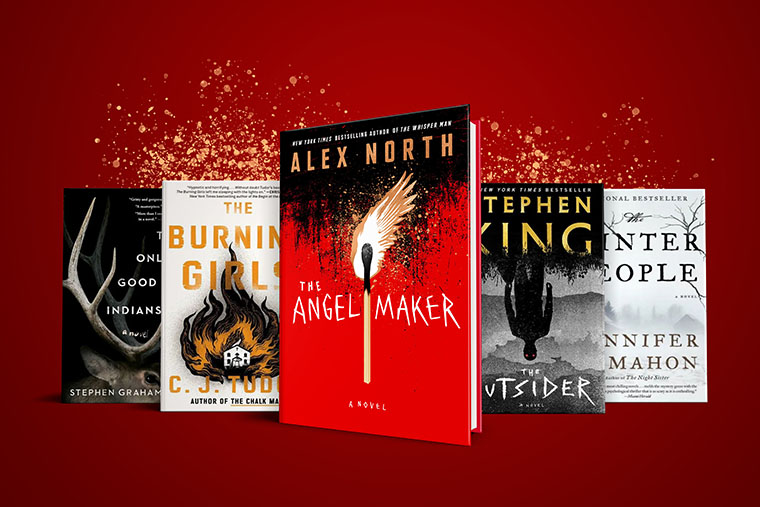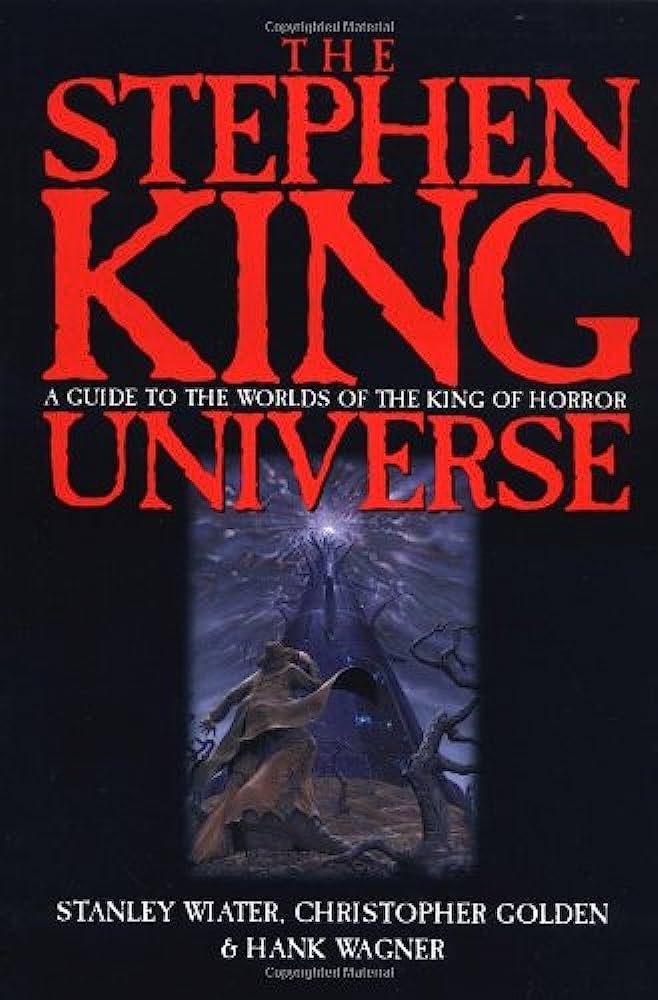The Influence Of Stephen King: How His Books Shaped The Horror Genre
Stephen King, the master of horror himself, has left an indelible mark on the literary world with his spine-chilling tales that continue to haunt readers to this day. In this article, we delve into the influence of Stephen King and how his books have shaped the horror genre as we know it. Brace yourself for a thrilling journey through the dark and twisted corridors of King’s imagination.
Stephen King is no ordinary author; he’s a literary force to be reckoned with. His ability to weave captivating stories that tap into our deepest fears is nothing short of remarkable. From the iconic “Carrie” to the bone-chilling “The Shining,” King’s books have become synonymous with the horror genre. With his vivid descriptions, relatable characters, and nail-biting suspense, King draws readers in, keeping them on the edge of their seats until the final page. But his influence goes beyond mere storytelling; he has redefined what it means to be scared.
The impact of Stephen King’s work on the horror genre cannot be overstated. Through his imaginative narratives and unique storytelling techniques, he has inspired countless authors to explore the depths of terror and suspense. In this article, we will explore how King’s books have not only entertained but also shaped the very essence of the horror genre, leaving an indelible mark on literature and popular culture. So, buckle up, dear reader, and prepare to be immersed in the twisted world of Stephen King.

The Influence of Stephen King: How His Books Shaped the Horror Genre
Stephen King is widely regarded as one of the most influential authors in the horror genre. His books have not only terrified readers for decades, but they have also had a profound impact on the genre as a whole. From his iconic characters to his chilling storytelling techniques, King’s influence can be seen in numerous aspects of modern horror literature and film.
The Birth of a Horror Icon
Stephen King’s journey to becoming a horror icon began with his debut novel, “Carrie,” published in 1974. The story of a high school outcast with telekinetic powers resonated with readers and marked the beginning of King’s unique style. His ability to tap into the fears and anxieties of everyday life and transform them into terrifying tales set him apart from other horror writers of the time.
King’s success continued with novels like “The Shining,” “It,” and “Pet Sematary,” each one pushing the boundaries of the horror genre. His vivid descriptions, complex characters, and atmospheric settings captivated readers and solidified his reputation as a master storyteller. It was during this time that King’s influence on the horror genre began to take shape.
Revitalizing the Genre
One of the key ways in which Stephen King influenced the horror genre was by revitalizing it during a time when it had become stagnant. In the 1970s and 1980s, horror literature was dominated by gothic tales and traditional monsters like vampires and werewolves. King injected new life into the genre by bringing horror into everyday settings and exploring the fears that lurk in the mundane.
His novels often featured ordinary people facing extraordinary horrors, such as a possessed hotel in “The Shining” or a shape-shifting monster in “It.” By grounding his stories in reality, King made them more relatable and therefore more terrifying. This approach opened the door for other authors to explore similar themes and paved the way for the psychological horror subgenre.
King’s influence extended beyond literature and into the world of film. Many of his novels have been adapted into successful movies and TV shows, introducing his distinctive brand of horror to a wider audience. These adaptations have further solidified King’s place as a cultural icon and expanded the reach of the horror genre.
Changing the Rules
In addition to revitalizing the genre, Stephen King also changed the rules of horror storytelling. Traditionally, horror relied on suspense and jump scares to frighten audiences. King, however, understood that true horror comes from a deeper place within the human psyche.
His books delve into the darkest corners of the human mind, exploring themes of addiction, grief, and the fragility of sanity. By tapping into these universal fears, King created stories that resonated on a deeper level and left a lasting impact on readers. His ability to blend supernatural elements with grounded human emotions set a new standard for horror storytelling.
Furthermore, King’s emphasis on character development and intricate plotlines elevated the genre beyond mere shock value. His protagonists were flawed and relatable, allowing readers to form a deeper connection with them and become emotionally invested in their struggles. This emphasis on character-driven narratives paved the way for a new wave of horror literature that focused on psychological depth and emotional resonance.
In conclusion, the influence of Stephen King on the horror genre cannot be overstated. Through his groundbreaking novels and unique storytelling techniques, he revitalized the genre, changed the rules of horror storytelling, and introduced a new level of psychological depth. King’s impact can be seen in the work of countless authors and filmmakers who continue to draw inspiration from his masterful storytelling. The horror genre owes a debt of gratitude to Stephen King for shaping it into what it is today.
The Influence of Stephen King: How His Books Shaped the Horror Genre
- Stephen King’s books revolutionized the horror genre, bringing fresh and terrifying concepts to readers.
- His ability to create relatable and complex characters adds depth and authenticity to his stories.
- King’s use of suspense and tension keeps readers on the edge of their seats, unable to put the book down.
- His exploration of the human psyche and the darkness within showcases the true potential of horror fiction.
- Stephen King’s influence extends beyond literature, inspiring countless filmmakers and writers to delve into the world of horror.
Frequently Asked Questions
What is Stephen King’s impact on the horror genre?
Stephen King is undeniably one of the most influential figures in the horror genre. His books have shaped the landscape of horror literature and have had a profound impact on the genre as a whole. King’s ability to create compelling characters, build suspense, and tap into our deepest fears has made him a master of horror storytelling.
His unique blend of psychological horror, supernatural elements, and everyday horrors has resonated with readers around the world. King’s books have not only entertained but also challenged our perceptions of what horror can be. His impact on the horror genre is immeasurable, and his works continue to inspire and influence both aspiring writers and established authors.
How did Stephen King revolutionize the horror genre?
Stephen King revolutionized the horror genre by bringing a fresh and unique perspective to it. His ability to delve into the darkest corners of the human psyche and explore themes of fear, loss, and the supernatural set him apart from other horror writers of his time. King’s writing style, characterized by vivid descriptions, rich character development, and intense suspense, captivates readers and keeps them on the edge of their seats.
Moreover, King’s willingness to tackle taboo subjects and address real-world issues within the context of his horror stories added depth and complexity to the genre. He showed that horror could be more than just cheap scares and gore, but a medium for exploring the human condition. This revolutionized the way horror was perceived and opened doors for a new wave of horror literature and storytelling.
What are some of Stephen King’s most influential books in the horror genre?
Stephen King has written numerous influential books in the horror genre, but some of his most notable works include “Carrie,” “The Shining,” “It,” “Pet Sematary,” and “Misery.” These books have not only become bestsellers but have also had a lasting impact on the genre.
“Carrie” introduced readers to King’s unique brand of horror, blending coming-of-age themes with supernatural elements. “The Shining” showcased King’s ability to create a sense of isolation and psychological terror. “It” brought the fear of childhood nightmares to life in the form of an ancient evil. “Pet Sematary” explored themes of grief and loss with a chilling supernatural twist. “Misery” delved into the mind of a deranged fan and the horrifying lengths they would go to keep their favorite author captive.
How has Stephen King influenced other horror authors?
Stephen King’s influence on other horror authors cannot be overstated. His success and mastery of the genre have inspired countless writers to explore their own dark imaginings. King’s ability to create richly developed characters, build suspense, and tap into universal fears has become a benchmark for aspiring horror authors.
Many authors credit King as a major influence on their writing careers and cite his works as a source of inspiration. His ability to weave together multiple storylines, blend genres, and create a sense of terror has set a new standard for horror fiction. King’s success has also paved the way for other horror authors to gain recognition and popularity, as his works have brought the genre into the mainstream and proved its enduring appeal.
What is the legacy of Stephen King’s influence on the horror genre?
Stephen King’s influence on the horror genre is far-reaching and enduring. His books have not only shaped the genre but have also become cultural touchstones. King’s ability to tap into universal fears and explore the human condition through the lens of horror has made his works timeless.
His influence can be seen in the works of countless authors who have been inspired by his storytelling techniques, themes, and characters. The popularity and success of King’s books have also helped elevate the horror genre as a whole, making it more respected and recognized as a legitimate form of literature. King’s legacy as a master of horror will continue to inspire and influence future generations of writers and readers.
how Stephen King gets his ideas
Final Thoughts: The Enduring Legacy of Stephen King
As we reach the end of our exploration into the captivating world of Stephen King and his immense influence on the horror genre, one thing becomes abundantly clear: King’s impact is nothing short of legendary. His ability to create spine-chilling narratives, complex characters, and atmospheric settings has solidified his status as the undisputed master of horror. But it doesn’t stop there. King’s literary prowess extends far beyond the realm of scares, as his stories delve into the depths of the human psyche, exploring themes of fear, loss, and resilience.
In the vast landscape of horror literature, few authors have left such an indelible mark as Stephen King. His ability to tap into our deepest fears, to make us question the boundaries of reality, is a testament to his unparalleled storytelling skills. From his early works like “Carrie” and “The Shining” to his recent masterpieces like “It” and “The Outsider,” King has consistently pushed the boundaries of the genre, weaving tales that keep us up at night and haunt our imaginations long after we’ve turned the final page.
It is undeniable that Stephen King has shaped the horror genre as we know it today. His influence can be seen in the works of countless authors and filmmakers who have drawn inspiration from his chilling narratives and psychological depth. Whether you’re a die-hard horror fan or just a casual reader looking for a thrilling adventure, Stephen King’s books are an essential part of any literary journey. So, grab a copy, dim the lights, and prepare to be transported into a world where the line between reality and the supernatural blurs—a world crafted by the one and only Stephen King.






